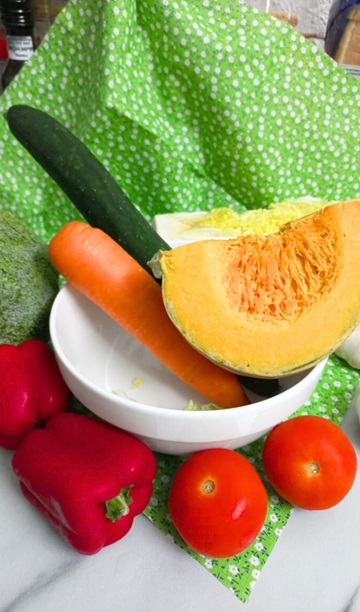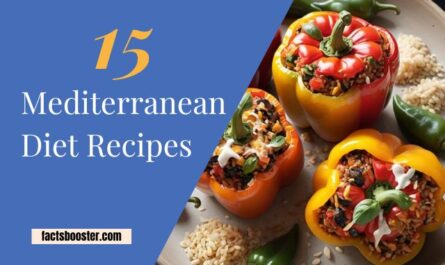Bloating and constipation have bothered me for a long time. I thought I was eating healthy—how could things get worse the more I tried to eat clean?
In my last post, I shared how I’d been struggling with constipation lately. Determined to fix it, I made a shift toward “healthy eating.” I cut out junk food and focused on so-called superfoods. Yet, the constipation and bloating only seemed to intensify. I felt gassy all day, my clothes started feeling tight, and I wasn’t even overeating—in fact, I was eating more mindfully than ever. So what was going on?

Aren’t These Supposed to Be Healthy?
Because my stomach was constantly uncomfortable, I figured diet was the key. I had heard that soy milk is rich in plant-based protein and dietary fiber—great for digestion, right? Lots of people around me drink it daily and swear by its health benefits. So I began my mornings with a cup of unsweetened soy milk, hoping it would help with bowel movements and rebalance my gut.
At first, everything seemed fine. I was thrilled, thinking I had found the perfect fix. But just a few days in, I noticed my belly feeling tight and bloated. My digestion felt off, and the constipation hadn’t improved.
I started to wonder—was soy milk the problem? Or something else? Everyone else seems to drink it just fine. Why was my gut reacting so badly? To find out, I began tracking my meals and symptoms every day.
Turns Out—This Was the Real Culprit
To get to the bottom of it, I decided to stop drinking soy milk every morning. I switched back to warm water and lighter breakfasts. The next day, I noticed a big difference—my belly wasn’t bloated like before.
That’s when I realized: the soy milk could be the problem.
After doing some digging, I discovered that soybeans are a high-FODMAP food. FODMAPs are types of carbohydrates that are poorly absorbed in the small intestine. When they reach the large intestine, gut bacteria ferment them rapidly, producing gas—leading to bloating, flatulence, and even stomach pain. For someone like me, with a sensitive gut and existing digestive issues, soy milk only made things worse.
Gastroenterologists often warn that if you have IBS, slow digestion, or chronic constipation, loading up on high-FODMAP foods might do more harm than good. Instead of soothing the gut, they can overload it and lead to more discomfort. (1)
So no, soy milk isn’t unhealthy—but my gut simply wasn’t in a place to handle it.
High-FODMAP vs. Low-FODMAP Foods
Here’s a quick reference list of high- and low-FODMAP foods:

✅ Low-FODMAP Foods
Vegetables: Carrot, pumpkin, cucumber, tomato, eggplant, lettuce, bean sprouts, spinach
Fruits: Unripe banana, orange, strawberries, blueberries, honeydew, grapes, kiwi
Grains: White rice, oats (in moderation), cornmeal, potato, sweet potato (small amount)
Protein: Egg, chicken, pork, fish, firm tofu, small portions of fermented soy
Dairy Alternatives: Lactose-free milk, coconut milk, oat milk (check for no additives)
Others: Natural peanut butter, olive oil, rice noodles, small handful of nuts (walnuts, peanuts)
🚫 High-FODMAP Foods
Vegetables: Onion, garlic, broccoli, cauliflower, Brussels sprouts, leek, scallion (white part)
Fruits: Apple, pear, watermelon, mango, plum, peach, cherry, dried fruits (e.g. raisins)
Grains/Legumes: Wheat (bread, noodles), black beans, red beans, chickpeas, lentils
Dairy: Milk, yogurt, soft cheeses, ice cream
Sweeteners: Erythritol, sorbitol, xylitol, mannitol (found in sugar-free products)
Drinks: Fruit juice, beer, soda, fructose-sweetened beverages
Read this if you Drinking Lots of Water but Still Constipated
How I Improved My Bloating and Constipation
I made several changes to ease my symptoms:
- I cut out high-FODMAP foods, including soy milk, onions, apples—foods I thought were healthy.
- I avoided “sugar-free” processed snacks, since they’re often loaded with gas-producing sugar alcohols like erythritol or xylitol.
- I introduced gentle, low-bloat fiber sources like steamed pumpkin, carrots, and mashed sweet potatoes.
- I switched from brown rice to white rice, which is easier on digestion.
- I spread fiber intake more evenly throughout the day instead of consuming too much in one meal.
- For protein, I opted for softer, gentler choices like steamed eggs, white meat, and small servings of fermented soy products (like miso soup and tofu).
After about two weeks, I felt a huge difference. My stomach was much lighter, and the daily bloating finally subsided. Although constipation didn’t completely disappear, removing the bloating brought massive relief.
Do You Struggle With Bloating and Constipation Too?

If you’re battling bloating and constipation, I truly get how frustrating it can be. You’re doing everything “right”—eating clean, avoiding grease and sugar, increasing fiber—yet your body feels worse, not better. The endless gas, discomfort, and slow bowels can seriously impact your mood and quality of life.
But don’t be hard on yourself. Everyone’s body is different, and not every “healthy” food is right for you. The best thing you can do is start tracking what you eat and how your body reacts—just like I did. That’s how you’ll pinpoint the real troublemakers behind your symptoms.
Final Thoughts
Not every “healthy” food is healthy for you. True health is about listening to your body and finding what works for you. If someone you know is also dealing with bloating or constipation, feel free to share this post—they might be dealing with the same thing without realizing it.


